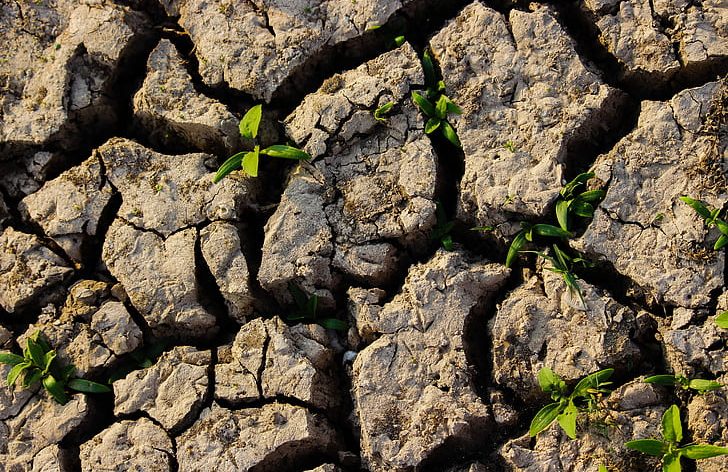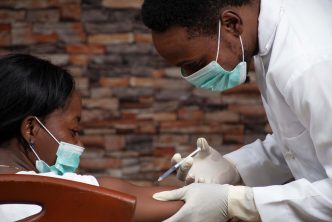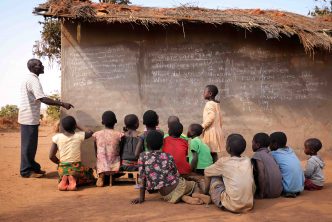Image credit: UI Here
Africa is in rot. Milton Friedman suggests that national crises create opportunities for change. Are Africa’s intellectuals ready with ideas?
Africa is in a funk. As the world gets richer and moves into the fourth industrial revolution, poverty becomes more African (Kharas & Hamel, 2018)(1). In a decade, 90 percent of the world’s poor will be Africans (Barnes & Wadhwa, 2018)(2), and this is even though 30 percent of the world’s known mineral resources are in the continent (Diop, 2013)(3). Despondency kicks in when most political, social and economic trajectories yield to the gravitational pull. While it is tempting to blame the current presidents of these countries, the fact is that Africa has been on a significant decline for decades. The question is why.
The heavens seal no country’s fate. Not even Yemen’s as the most-fragile state in the world is doomed to collapse. It is the power of the intellect and the sweat of the brow that shapes a nation’s destiny. Countries, like people, need to be motivated. If you need an example, think of the technical disadvantage of the United States to USSR in 1962 when John F. Kennedy staked the country’s pride on a goal of putting a man on the moon before the end of the decade.
Africa needs big ideas. The challenge in the continent is neither the imminent end of resource-fuelled growth nor the rampaging terrorists. The problem is that most countries on the continent do not have big, hairy, audacious goals that stretch the imagination of their people and galvanize their fighting spirit. It is this lack of momentum – this feeling of being lost at sea – that is exerting a psychological toll on Africans. As of 2019, except for Botswana and Mauritius, all African countries are “fragile” and vulnerable to conflict or collapse. (4) Hope is the universal elixir that propels people to keep placing one foot in front of the next. Nations die when the tonic dries up.
African leaders and followers have failed. How will the leaders know what the people want if the latter have not said so? Why won’t the leaders snooze when they see that the people are sleeping. Leaders of prosperous countries do not slumber because they know that the people are watching them. Can’t you see how they go into office fresh and come out grey (think, Bill Clinton and Barack Obama)? The reverse is the case for African leaders (pick your favourite example).
Africa’s failure is, indeed, the failure of its intelligentsia. Even an African government that wants to act will be hard-pressed to find rigorously debated ideas to adopt. The continent’s intelligentsia appears to be discouraged because the political leadership is unengaged. Milton Friedman (5) cautioned against lethargy in the face of the “tyranny of the status quo”. He warned that change happens when the government eventually runs into a crisis. However, at this time, “the actions that are taken [by the government] depend on the ideas that are lying around.” Therefore, it behoves the intellectual “to develop alternatives to existing policies, to keep them alive and available until the politically impossible becomes politically inevitable.”
Africa is wasting its current crisis. Where are the options from which the government can pick? As happens in most government meetings, it is the loudest or most forceful idea that wins even when there is no evidence to validate the proposed solution. It is little wonder that the governments implement various interventions which end up causing more harm than good to the economic wellbeing of the people.
Africa needs thinkers. The continent has only 612 think tanks (or 7.4 percent of the global total of 8,248 think tanks). Research by Benjamin Powell and Matt Ryan (6) indicates a correlation between the number of think tanks in a country and economic progress achieved. Given the time it would take to build up this idea shops, Africa’s interim solution is to rely on its public intellectuals to debate these ideas. The debates must start now. What is the value of a free press if it cannot curate discussions? Hopefully, these debates will provide a way out of the pervasive despondency before it congeals into total despair. At that stage, all bets are off.
References
—–
(1) Kharas, H. and Hamel, K., 2018. A global tipping point: Half the world is now middle class or wealthier. Brookings Institution, Washington DC.
(2) Barnes, D. and Wadhwa, D. (2018). Year in Review: 2018 in 4 Charts. World Bank.
(3) Diop, M. (2013). Helping Africa win better deals for its minerals. World Bank Blogs.
(4) Fragile States Index (2020). Measuring Fragility: Risk and Vulnerability in 178 Countries.
(5) Friedman, M., 2009. Capitalism and freedom. University of Chicago Press.
(6) Powell, B. and Ryan, M.E., 2017. The Global Spread of Think Tanks and Economic Freedom. Journal of Private Enterprise, 32(3), p.17.







